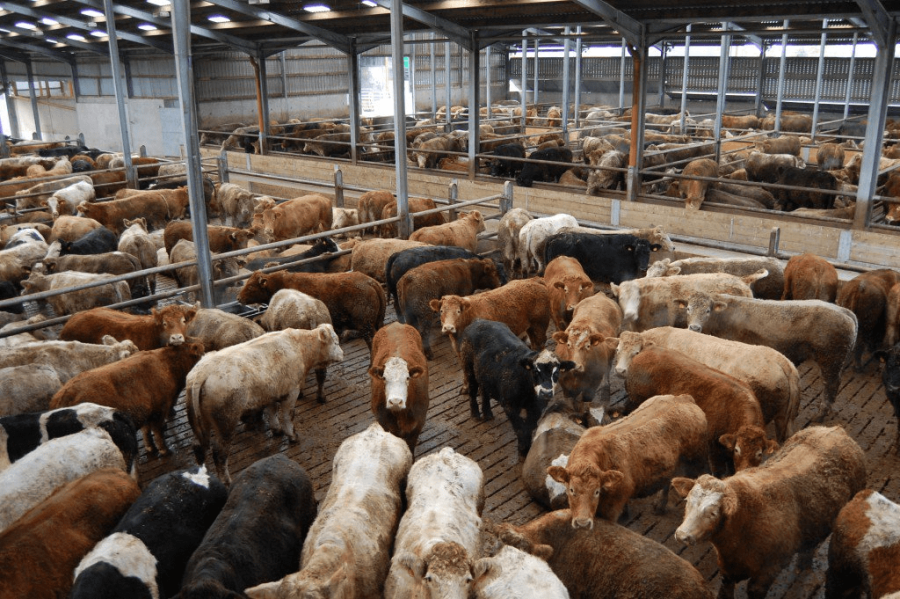When UC San Diego pledged to become carbon neutral by 2025, faculty wasted no time in putting these claims to action. The school is currently on track to have 30 percent of campus-provided food coming from sustainable sources by 2020 and is working to move its vehicles to renewable energy. However, UCSD is overlooking a significant contributor to its carbon footprint: meat. Knowing that the meat industry makes up approximately 40 percent of global agricultural product in the U.S. and has a largely negative environmental impact, pulling back on the number of meat products served on campus will serve as a vital area on which the school will need to focus its goals. UCSD needs to shift its on-campus food selection to have more plant-based, environmentally friendly options while adding sustainability workshops and programs to steer the university in a more sustainable direction.
The meat industry has quite a large stake in environmental harm. Animal agriculture accounts for between 14 and 18 percent of global greenhouse gas emissions, with beef releasing four times the emissions of a caloric-equivalent of pork and five times that of poultry. In fact, the amount of carbon dioxide released from producing one pound of beef is even greater than that of burning a gallon of gasoline. Plant-based foods, on the other hand, produce three to five times fewer emissions in the process of their production compared to mass equivalents of meat products. These numbers foretell that plant-based diets will have to be at the forefront of our thinking for a sustainable, plate-filling future.
Yet reasonably and expectedly, not many people are ready to give up meat. The Wall Street Journal recently released an article discussing how the U.S. beef-cattle herd has increased by 12 percent in the past four years, and in 2017 a record 99.7 billion pounds of red meat and poultry were produced. Companies such as Tyson Foods Inc. are even planning on pushing meat production to increase by 3.8 percent in 2018 through the construction of new plants and slaughterhouses. Evidently, consumption, and therefore production, of meat is steadily increasing.
Yet reducing UCSD’s carbon footprint does not necessarily mean giving up meat, but simply cutting down on individual consumption. While UCSD moves toward more sustainable food offerings on campus, the opportunity-in-hiding directly relates to educating students on the environmental benefits of plant-based diets. UCSD can use its leverage as a top-rated research university to educate students further on the benefits of plant-based eating and to reinforce healthy and sustainable diets for students’ futures. After all, the demand for plant-based diets is growing; according to a recent study, the number of U.S. individuals identifying as a vegan has increased from one percent to six percent from 2014 to 2017. By offering more plant-based options and educating on plant-based diets, students would be encouraged to eat more sustainable food while decreasing meat consumption, thus pushing UCSD forward in its sustainability goals.
Current resources students have to reduce their carbon footprints include guides for vegetarian and vegan dining, shopping lists for affordable organic foods, and links for various information on sustainable eating. But attempting plant-based diets for the first time can be intimidating and difficult, and links on a website can only do so much. Education on these diets could be extremely beneficial for students standing on the line between plant and meat meals, providing them with information about the environmental and economic benefits of plant-based diets. At an individual level, for instance, reducing meat consumption would not only reduce methane levels released into the atmosphere but would reduce water usage as well. If Americans increased plant-based food consumption from the current 15 percent up to 25 percent, the amount of water saved could fulfill two-thirds of California’s annual water needs. Even ignoring environmental issues, a plant-based diet is cheaper and healthier to maintain than a meat-eating diet. Companies aiming to be more sustainable have economic benefits as well. They can increase revenue by reducing waste, by improving energy efficiency, and by increasing resource productivity.
UCSD has been making several innovative movements in becoming a more sustainable university. But as the university moves forward with its sustainability plans and commitments, the HDH and Sustainability faculty need to develop educative and immersive workshops to inform students on the benefits of plant-based diets for the environment, as well as shifting food options to being more plant-based. In doing so, UCSD’s sustainability goals will not only positively impact the campus, but they will also influence students in ways that they may easily take with them for the rest of their lives, slowly shifting our generations to a more sustainable future.








